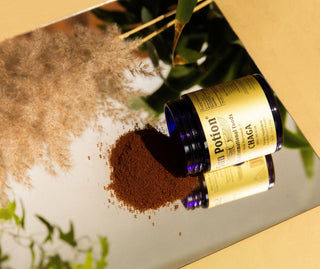Plants are intuitive beings. They are resilient, good teachers, and in our
relationships with them, we can learn a lot (if we can figure out how to just
listen!).
Whether you’re sipping a plant based elixir, taking a walk through a garden,
growing plants yourself, or even just doing a little meditation around the
image or story of a plant, you can tap into those messages for inspiration for
writing.
In my own work as a writer, I have found that listening starts with paying
attention. This is the same as working with our intuition. Indigenous
woman, author, and plant ecologist Robin Wall Kimmerer writes,
“paying attention is a form of reciprocity with the living world, receiving
the gifts with open eyes and open heart.”
To begin, you can pull out a journal and a pen. You may have a lot of experience with plants, or your plant knowledge may be somewhat
limited. Either way is okay!
Some questions to ask yourself in your journal:
- How can we listen to plants?
- Who are some poets that you love who write about the natural world?
- How can we work with the tales and lore of plants in our work?
- What can plants teach us?
- Name some plants that are dear to your own heart or memory.
- How can we be better witnesses?
In my own studies of herbalism and the natural world, one of my favorite
plants is Datura. This is in part because as a young child, I first met Datura
through gardening with my grandma, but also because Datura is a talented
storyteller.
Daturas have been used as poisons, medicines, and ritual intoxicant agents
for centuries. Each species has its own characteristic narcotic tropane
alkaloids, which also make both dangerous and poisonous plants.
The genus name comes from the Hindu word “dhatura” which means
“thorn apple.” This name is in reference to the appearance of the
seedpods of Datura, which look like thorn covered apples. Datura is also
commonly known as Devil’s Trumpet.
Datura has also influenced famous artists. Georgia O’Keeffe depicted
Datura flowers in her paintings. She said, “When I think of the delicate
fragrance of the flowers, I almost feel the coolness and sweetness of the
evening.”
Some believe the Oracles of Delphi used Datura to induce their visions,
and others thought that smoking Datura would ease asthma symptoms.
Below is a poetry prompt for writing with Datura. These prompts are
seven line prompts are meant to help hold your hand in creating a poem.
Each line describes a different “move” in the poem that the writer can
make. Some lines have sentences started for you.
|
Datura
Line One: "A sort of sliver _____"
Line Two: Describe the moon in a way you've never heard before
Line Three: Use the word oracle
Line Four: "Vision, look now, I see ____"
Line Five: Paint a picture with either coolness/sweetness
Line Six: Reference phases
Line Seven: "Sometime poison can mean ____"
|
If you wish, you can pick any plant you feel drawn to and craft your own
prompt to connect with its story or practices! Before you begin, try
answering the questions from the beginning of the prompt. See what
comes up for you around listening and bearing witness before writing
your poem.
**Small disclaimer, please do not take any of the above as medical
advice, and always approach plants (especially poisonous plants) with
care and respect! Before ingesting any plant, please consult a
professional.
Jimson Weed, 1936 by Georgia O'Keefe
Feature Image: Georgia O'Keefe by Alfred Stieglitz
Intuitive Writing Prompt #7: Poetry As Ritual



















